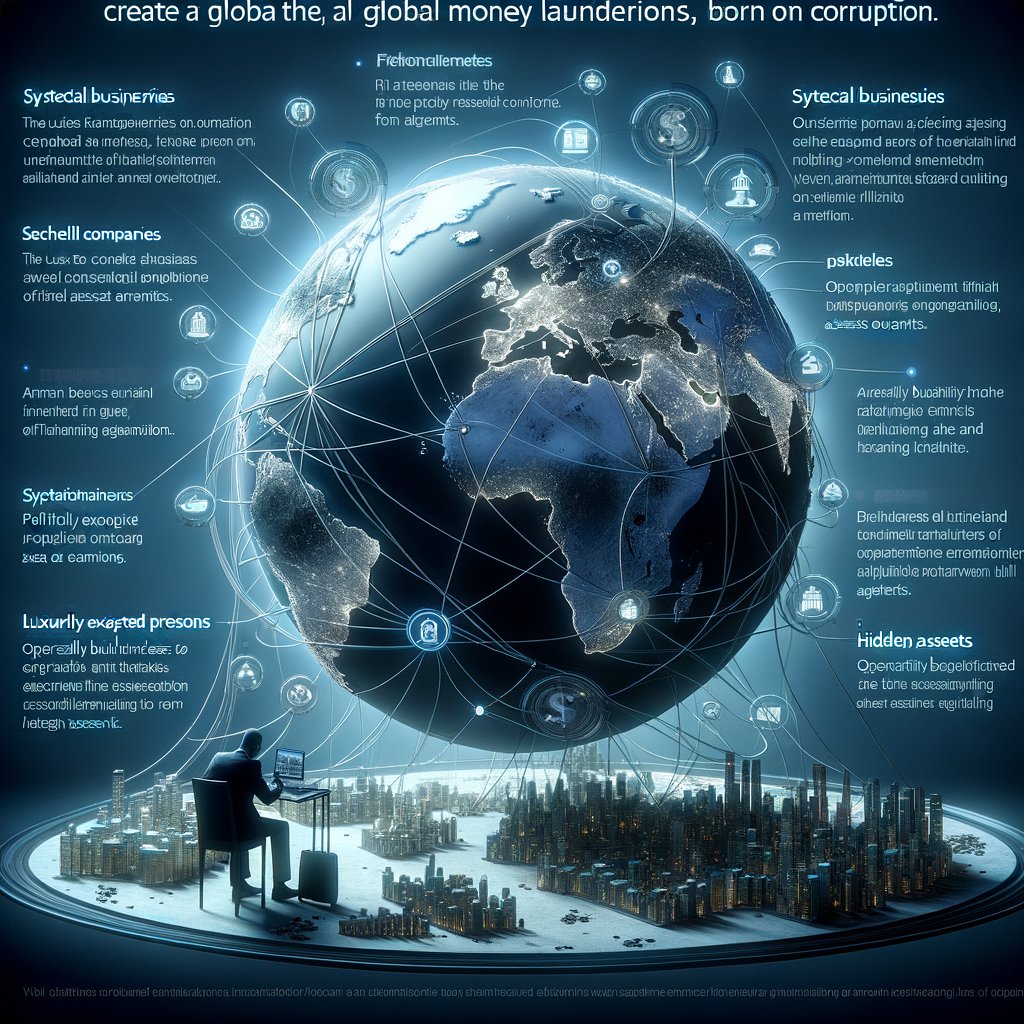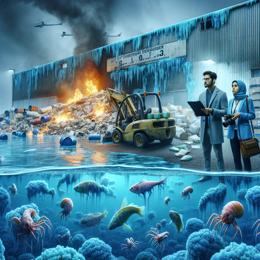Image created by AI
The Great Escape: Tracing Africa’s Lost Billions Hidden in Global Havens
The staggering extent of corruption-linked assets hidden in affluent nations once again swings into the spotlight, as an in-depth analysis discovers over US$3.7 billion in African assets veiled across the globe. From penthouses in Miami to secretive shell companies, the pathways carved by dirty money expose profound systemic failures in international financial regulations.
Denis-Christel Sassou Nguesso, son of the President of Congo, is just one high-profile figure amongst many accused of channeling millions from state coffers into opulent overseas assets through a network of subtle and complex legal entities. This case highlights the broader systemic issue where substantial amounts of state funds meant for public development are laundered through sophisticated networks into luxury real estate and other high-value assets worldwide.
The detailed examination looked into 78 cases where assets were intricately disguised and dispersed across 74 jurisdictions, illustrating a prevalent exploitation of regulatory loopholes. Key findings include the predominant use of companies and trusts to mask true asset ownership, with about 85% of cases using this method to complicate tracing back to the corrupt officials.
Real estate emerges as a common channel for laundering ill-gotten funds; property holdings investigated in the study amounted to at least US$560 million, often acquired via indirect ownership structures that obscure the money’s origins. Popular destinations span from France to the US, where regulatory gaps like non-disclosure of real beneficial owners facilitate such secretive acquisitions.
In the U.S. alone, properties valued at around US$178 million were linked with corruption cases. States like New York and Florida are pinpointed as hubs for these transactions, with luxury residences often purchased through layered ownership structures involving multiple shell companies.
The bulk of the laundered money aids in purchasing properties directly from funds transferred from the originating country or through elaborate layers of companies set up primarily in secrecy jurisdictions like the Seychelles and the British Virgin Islands. The apparent oversight or neglect by financial institutions to perform due diligence on these transactions plays into the hands of the corrupt.
Moreover, politically exposed persons (PEPs) often establish operational businesses abroad, obscuring conflicts of interest or illicitly securing foreign assets. Such maneuvers ensure ongoing financial returns cleansed of their dubious origins. For instance, Angolan business mogul Carlos São Vicente was engineered an elaborate scheme involving an insurance company and reinsurance contracts inflated through a string of offshore entities.
This profound investigation sheds light not merely on the scale but also on the intricate and covert mechanics of global money laundering practices linked to corruption in Africa. It emphasizes the urgent need for tightened regulatory measures in both financial and non-financial sectors worldwide, enhanced due diligence, and improved transparency in asset ownership. The revelations beckon a call to action for global governance frameworks to adapt and enforce more stringent anti-money laundering protocols to prevent further erosion of public resources from regions as vulnerable as Africa.





